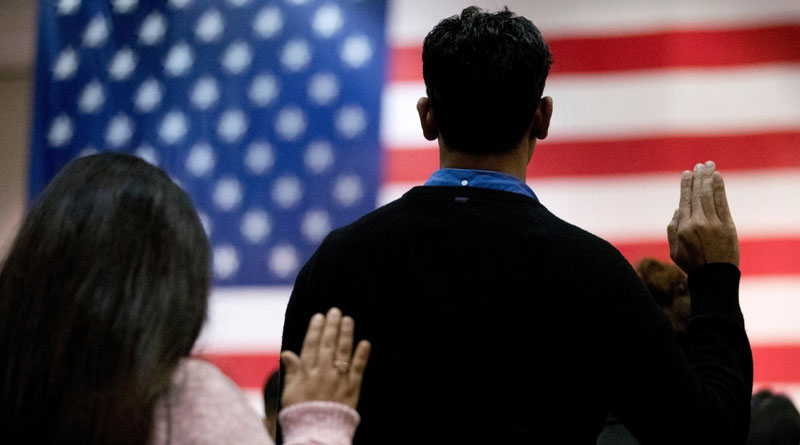The Trump Administration’s proposal, a brief analysis on the cause of inadmissibility by public charge.
Elizabeth Méndez Salom, Esq.
Sanchez Vadillo LLP
Since Donald Trump assumed the presidency of the United States in 2016, there has been an increasing concern amongst immigrants about the effects of the changes that the new administration is promoting towards immigration. One of the proposals that is currently being discussed refers to the modification of the grounds of inadmissibility for public charge established in the Immigration and Nationality Act.
The current law establishes the principle that aliens, who enter to the United States, both temporarily or as immigrants, must not depend on public resources to meet their needs, and must demonstrate that they can sustain themselves financially, or with the help of their family members, or through the sponsorship of their employers. In accordance with the provisions of Section 212 (a) (4) of the Immigration and Nationality Act(INA) “Any alien who, in the opinion of the consular officer at the time of application for a visa, or in the opinion of the Attorney General at the time of application for admission or adjustment of status, is likely at any time to become a public charge is inadmissible[…] In determining whether an alien is excludable under this paragraph, the consular officer or the Attorney General shall at a minimum consider the alien’s (I) age; (II) health; (III) family status; (IV) assets, resources, and financial status; and (V) education and skills . . .”
On September 22, 2018, the Department of Homeland Security (DHS) posted an advance copy of the Notice of Proposed Rulemaking (NPRM) related to the public charge ground of inadmissibility. The proposed regulation modifies the standard used to determine whether a foreigner could at any time in the future become a public charge, and is therefore inadmissible under section 212 (a) (4) of the Nationality and Immigration Act, ineligible for adjustment of status, or ineligible for admission or to receive a visa. This rule would also make ineligible non-immigrant foreigners who are considered a public charge to change status or extend their stay.
According to the proposal, this rule will not affect groups of foreigners that Congress has specifically excluded from the public charge ground of inadmissibility, such as refugees, asylees, Afghans and Iraqis with special immigrant visas, to nonimmigrant trafficking and crime victims, individuals applying under the Violence Against Women Act, and special immigrant juveniles. Likewise, the rule excludes the benefits received by U.S. citizen children of aliens who will acquire citizenship according to either section 320 or 322 of the INA, as well as to foreigners who are members of the Armed Forces of the United States.
Moreover, under the proposed rule, the Department of Homeland Security would only consider the direct receipt of benefits by the individual applicant. The receipt of benefits by dependents and other household members would not be considered in determining whether the alien applicant is likely to become a public charge.
The official publication of the Proposed Regulation Notification in the Federal Register, scheduled for October 10, 2018, opens a period of 60 days to receive comments from the public, which will allow citizens to express their opinions on how it should be applied. Once the Department of Homeland Security (DHS) considers public comments on the proposed rule, it plans to issue a final rule that will include an effective date.
The public benefits referred to in the regulations proposed by Trump’s administration include, among others, the largest Federal programs for low-income people by a total expenditure that addresses basic living needs such as income, housing, food, and medical care. Under the proposed regulation, the receipt of public funds that are not included in the 1999 Interim Field Guidance such as Medicaid, Medicare Part D, Low Income Subsidy (SNAP), and the designated housing benefits will not be considered to determine inadmissibility based on public charge ground, unless they have been received after the a final rule becomes effective.
If the proposed changes are approved for the determination of the public charge ground, the possibilities of obtaining legal status in the United States for both immigrants and non-immigrants would be further restricted. This is another example of how the current administration continues to narrow the path in which immigrants seek the United States of America to chase their American Dream.



Nothing new! This government is just enforcing the law to protect the contributing citizens who taxed money is being used by the noncitizen.
Hola qué tengo que hacer para pedir un Apart
Soy una ciudadana mayor con necesidades de adquirir un Apart
Espero su respuesta
Gracias
Saludos…Soy Maria L Fdez Tengo 70 años y Ciudadana de este Gran País??. en 2014 Solicité Plan 8 y Bajo Recurso. En 2019 Me llegó el Bajo Recurso. Estamos en 2022 y todavía No Me dan una ubicacion. Cada vez que Voy a la Oficina ahora ubicada en Allapatta Tengo en vez de bajar Mi # lo que hace es subir a uno Más alto. Hace meses Tengo Mis pertenencias en un estorach y Yo pernoctando donde Me coja la noche. Ya Mi estrés No responde a las pastillas de Mi Psiquiatra.